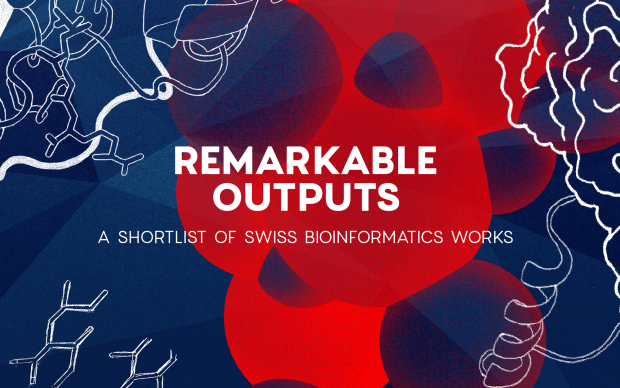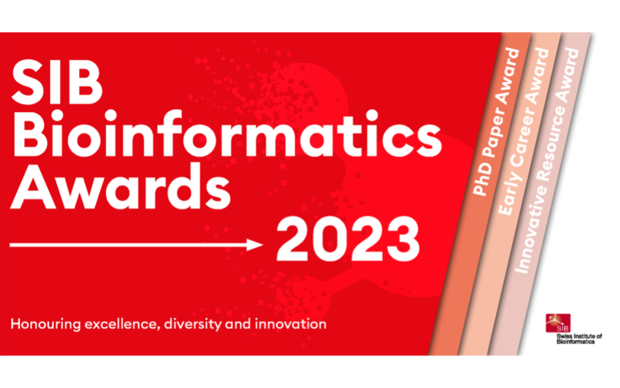Since 2008, the SIB Bioinformatics Awards acknowledge the best work by early career bioinformaticians and ground-breaking resources every other year. The awards are open to researchers from all over the world. There is something for everyone, with three categories to choose from: PhD Paper Award, Early Career Award and Innovative Resource Award. Find out about the top reasons to enter and the selection criteria. Laureates are announced during the [BC]2 conference. Sign up to receive updates on how to take part in the next edition in 2027!
Categories
The SIB Bioinformatics Awards honour excellence in three categories:
PhD Paper
The PhD Paper Award recognizes an outstanding article published by a PhD student as lead author in bioinformatics and/or computational biology, on a special theme for each edition. Works considered include original methodological contributions, as well as innovative in silico analysis of biological sequences, structures, or processes.
2025 theme: “Bioinformatics meets AI: shaping the future of data-driven biology”
Discover the past laureates:
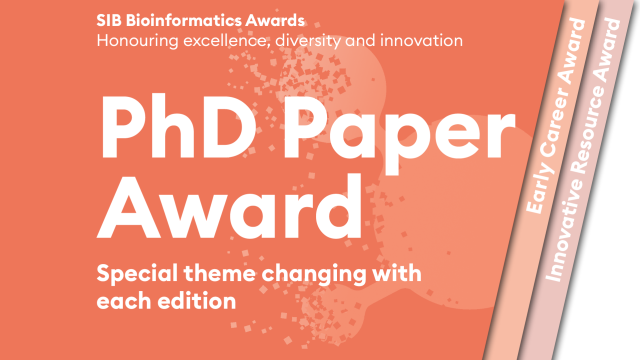
Early Career Award
The Early Career Award recognizes internationalearly career scientists who demonstrate excellence through one or several projects and/or papers in bioinformatics and/or computational biology. This encompasses original methodological contributions, as well as innovative in silico analysis of biological sequences, structures or processes.
Discover the past laureates:
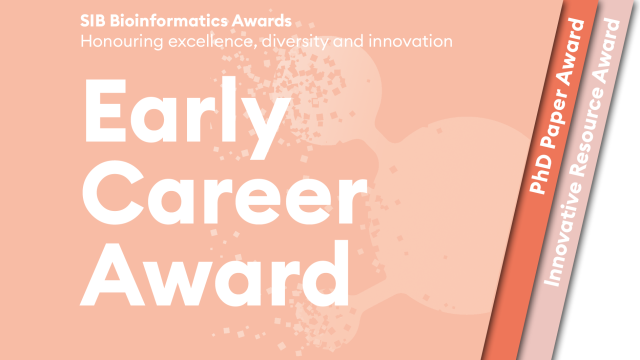
Innovative Resource Award
The Innovative Resource Award recognizes a bioinformatics resource (database, infrastructure, code-base, analysis framework, visualisation tool, etc.) that is breaking new conceptual and/or technical ground. The award is open to any new bioinformatics resource or any major new release of a resource.
Discover the past laureates:
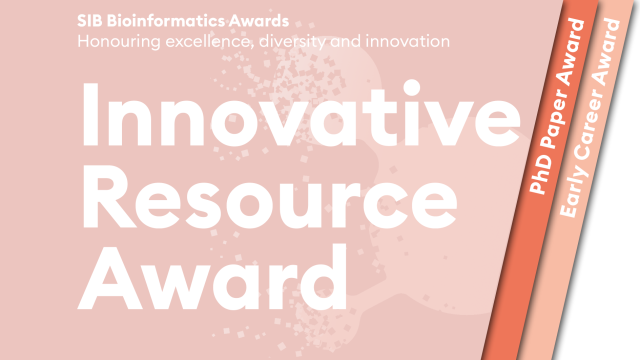
Top reasons to enter
- Cash prize: winners of the SIB Bioinformatics Awards receive a cash prize ranging from 5,000 to 10,000 CHF.
- Opportunity to attend the [BC]2 Basel Computational Biology Conference during which the awards ceremony takes place: a great networking and career development opportunity at one of the major bioinformatics events in Europe. Watch the video to discover the event and the past laureates!
- Present a plenary talk during the Awards Ceremony at [BC]2 which will be recorded and widely promoted via SIB’s social media channels. Watch the talk of one of a previous year’s laureates, Cédric Notredame.
Selection process and excellence criteria
The awards are assigned by an international jury, revised by the SIB Award Committee and announced during the biennial [BC]2 Basel Computational Biology Conference.
What you need to know to apply
SIB fosters excellence in bioinformatics and computational biology. This encompasses multiple dimensions, including academic rigour, breakthrough character, sustainability, usability (for software and resources) and overall contribution to the field of bioinformatics/computational biology.
The SIB Award jurors abide by the DORA principles in not using journal-based metrics, such as Journal Impact Factors, as a surrogate measure of the quality of individual research articles. They also strive to overcome unconscious biases, such as those associated with gender, minorities, affiliation or subfields, to ensure a fair and diverse representation of excellence.
Collaborative and interdisciplinary work can also qualify provided the bioinformatics and/or computational biology aspects meet the excellence criteria outlined above.
SIB is dedicated to providing a safe and respectful environment for its community members and upholding the highest standards of scientific ethics. To this end, an application may be rejected if the applicant's has demonstrated inappropriate behaviour towards any member of the scientific community or if the submission violates the Swiss Code of Conduct for Scientific Integrity.
Learn more about the qualifications and criteria for each award below.
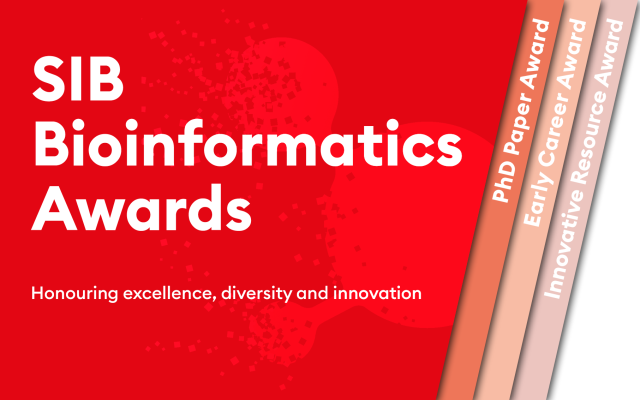
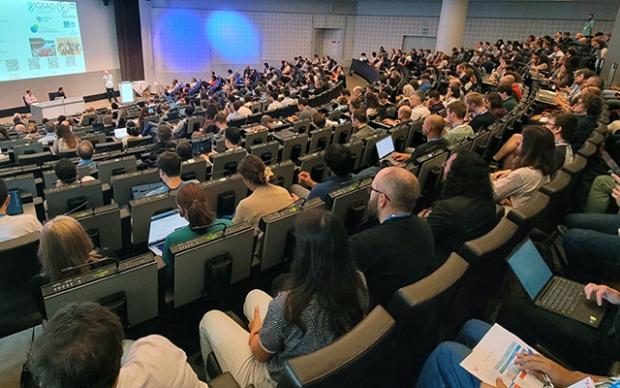
![Michael Skinnider presenting at the [BC]2 Basel Computational Biology Conference](/sites/default/files/styles/card_image/public/2025-10/michael-skinnider-banner.jpg?h=602a36b5&itok=tmJobPUi)
![Ilan Gold presenting at the [BC]2 Basel Computational Biology Conference](/sites/default/files/styles/card_image/public/2025-10/ilan-gold-banner.jpg?h=602a36b5&itok=YvC9BUMP)
![David Meyer presenting at the [BC]2 Basel Computational Biology Conference](/sites/default/files/styles/card_image/public/2025-10/david-meyer-banner.jpg?h=602a36b5&itok=JRGMwIRV)
